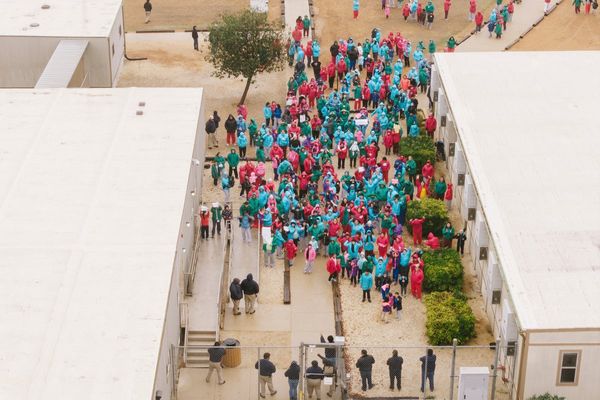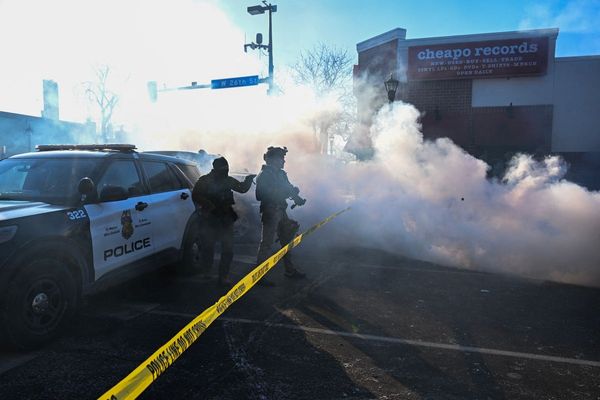San Diego City Council voted unanimously Tuesday to declare housing as a human right, a rare move for a city with a lot of housing issues.
San Diego's resolution states housing is a "fundamental human right and reaffirms its commitment to providing more housing and services geared toward putting a roof over the head of every San Diegan." Madison, Wisc., made a similar declaration in 2011 — making it likely San Diego is only the second, or at least part of a small minority of American cities, to put into writing that housing is a right.
The council had voted in October for the resolution to be reviewed by the City Attorney's Office over concerns about legal liability. It needed to come back Tuesday for an official vote.
Legal concerns might have clouded the debate in October, but this time the City Attorney's Office expressed no reservations about the resolution. Council's resolution is broad and most legal analysts describe it as more of a guiding principle — not a legal liability to house everyone.
"I am opting for a future where everyone deserves a home," said council President Sean Elo-Rivera. "This resolution is an important first step. The status quo in San Diego isn't working, in California, or in America, for that matter."
San Diego attorney Dan Eaton, who reviewed staff reports and the resolution ahead of the meeting, said Monday afternoon that the effort was only aspirational — not a binding law. He noted the staff report said there would be no financial obligation to the city to pay the rent for thousands of people.
"It's pretty clear it doesn't have any legal effect," Eaton said.
Councilmember Kent Lee acknowledged the declaration was aspirational and must be followed up with policy changes if San Diego was serious about housing being a right.
"We have significant work to consider ahead," he said.
The council had considered a variety of tenant protections last year, such as a landlord paying a renter if they are evicted at no fault of their own. The package of potential laws is set to be heard by the council in the next few months.
In October, some landlords, members of the public and business leaders expressed concern that it would become an obligation that people would need to be housed for free. The meeting Tuesday only drew two public comments opposed — compared to roughly 50 in support. A possible reason for the light showing was confusion in October that the city had passed the resolution, when the council had only voted for the City Attorney's Office to review.
"What is the true intent of this resolution?" asked Carol Watterson, a resident that called into the meeting. "You recognize that you are counting on private property owners to provide housing? I disagree in a free market that the city is responsible for housing."
Still, tenant rights groups dominated the meeting, primarily members of the Alliance of Californians for Community Empowerment. They argued the resolution was needed after several years of rising rents, increasing homelessness and a lack of housing options. In the first quarter of 2022, rents were up their highest year-over-year — 14 percent — in CoStar records for San Diego County going back to 2000.
Rent for a median one-bedroom in San Diego was $2,500 a month, said housing website Zumper's November report, making it the sixth-highest in the nation. The countywide vacancy rate is 3.7 percent, according to CoStar.
Barbara Pinto, 77, of San Diego told the council that she is spending 80 percent of her fixed income on housing and has been displaced many times.
"We all need decent housing, clean housing and affordable housing," Pinto said, noting she was on a waiting list for subsidized housing.
San Diego's resolution states that the city believes housing provides stability and security, and every person should have a secure, peaceful and dignified place to live.
The city cited the United Nations' 1948 Universal Declaration of Human Rights, which included the right to housing as a component of a standard of living adequate for the health and well-being of people, as precedent for its decision.
There isn't a database of U.S. cities that have declared housing as a right, but news articles and people familiar with the movement can usually only point to one similar case: The Madison city council declaring housing as a human right in 2011.
In Illinois, Cook County passed a law in 2019 called "housing as a human right" that prevented renters from being denied housing for expunged or juvenile records. Other cities have passed "right to shelter" laws that, with some variation, usually involve mandating homeless people have a shelter to sleep in.
Unlike the San Diego and Madison proclamations, there are stricter examples of housing rights overseas. In 2003, Scotland passed a housing law that mandated government find permanent housing for all homeless individuals within 90 days.
There have been attempts in California and at the federal level to declare housing as right, although they have yet to pass.







